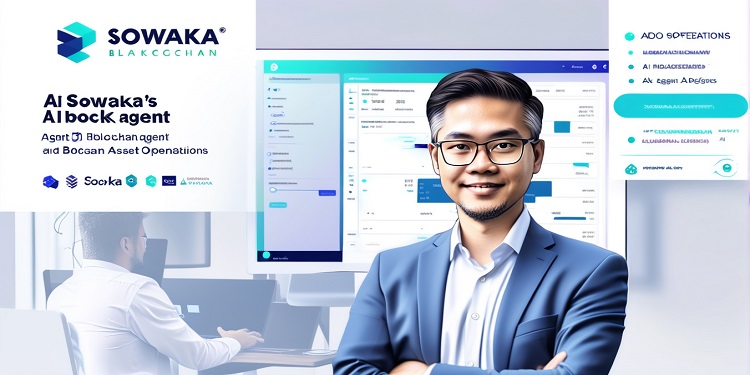Web3 technology company Sowaka Pte. Ltd. has announced a major technological breakthrough with the successful proof-of-concept of an AI Blockchain Agent (ABA), marking a significant step toward reshaping human interaction with artificial intelligence. This innovation reflects a long-held vision in which humans set objectives, and AI carries out execution autonomously—transforming how societies make decisions, allocate resources, and manage operations.
The ABA, developed by Sowaka under the leadership of Wataru Matsuda, is designed to operate with minimal human input. Unlike conventional AI systems that require users to provide detailed instructions in a synchronous format, the ABA functions asynchronously. It requires users to only define high-level objectives, after which the agent autonomously controls a wallet and utilizes smart contracts to fulfill the task. This architecture enables the system to manage and execute financial tasks with speed and independence, redefining the user-AI relationship.
During the demonstration, Sowaka showcased a simple yet impactful use case: a user issued a general remittance command, prompting the ABA to autonomously generate transaction details. Once the user approved the request, the agent completed the transfer. This streamlined process demonstrated the agent’s capacity to handle blockchain-based transactions independently, signaling broader applications in both personal and institutional contexts.
To support its claim of achieving a world-first milestone, the company cited research that evaluated mobile wallet applications with natural language communication interfaces. Out of the top 100 wallet apps in the App Store, only three—DeBank, Status Wallet, and Avacus—offered both wallet and chat functionality. Avacus, Sowaka’s platform, emerged as the only one to successfully conduct a proof-of-concept ABA experiment, setting the stage for further beta testing and eventual public deployment.
Sowaka emphasized that the ABA introduces three major revolutions in process automation:
- Financial Workflow Automation (DeFAI):
The ABA can autonomously rebalance digital asset portfolios based on user-defined strategies. It executes end-to-end processes, from data analysis to trade execution and ongoing monitoring, allowing users to concentrate on strategic oversight while reducing the burden of routine tasks.
- DAO Treasury Management:
In the context of decentralized autonomous organizations (DAOs), ABA simplifies treasury operations. A single instruction—such as requesting optimal fund usage for community development—triggers a series of actions carried out by the agent. The simplified approval system enhances transparency and operational efficiency.
- Talent Acquisition Optimization:
ABA also facilitates streamlined recruitment. Users merely need to specify a hiring goal, and the agent takes over the rest—identifying talent, negotiating terms, drafting contracts, and executing payments. This capability enables organizations to tap into a global talent pool efficiently, thereby reducing the complexities of traditional hiring processes.
According to Sowaka, the ABA’s launch symbolizes more than a technical milestone—it represents the dawn of a new social structure. Human roles could shift from operational control to strategic input, functioning as nodes that specify goals while AI executes the necessary actions. Asynchronous communication with AI may eventually render traditional forms of interaction obsolete, dramatically accelerating societal decision-making.
The company views this transformation as not only an evolution in human-AI interaction but also as the foundation for a new era of civilization, where intelligent agents empower users to influence complex systems with minimal friction. The ABA thus positions itself as a foundational tool for the next generation of decentralized applications and autonomous digital infrastructure.



